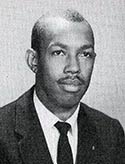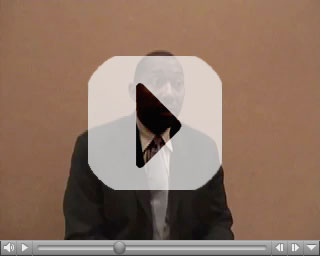Attracting Top African-American Physicians (1981-2002, Section 4)
While they still encountered discrimination in the waning years of the twentieth century, accomplished African-American physicians took advantage of new opportunities to forge successful careers and expand the services offered to their patients. While it is impossible to provide a comprehensive discussion of all those physicians here, the long-standing strength of Houston’s African-American medical community attracted many leading black doctors, such as Dr. William King.
In 1980, the United States Public Health Service (PHS) had appointed Dr. William King of Oklahoma as the director of its hospital in Nassau Bay, Texas, which is now known as St. John’s Hospital. He was the first African-American to hold such a position in PHS history. The PHS presently consists of agencies of the Health and Human Services Department along with its Commissioned Corps. The PHS traces its roots to the treatment of injured seaman in the early nineteenth century and to a loose network of locally controlled federal hospitals later in that century. The increasing involvement of the organization in public health issues led to it being renamed the Public Health Service in 1912.
Over the course of its history, the PHS addressed issues such as infectious diseases, immigration screenings, and immunization programs. Despite its involvement in the Tuskegee experiment, the PHS provided medical care to historically underserved constituencies such as American Indians, Alaskan Eskimos and African Americans. According to Dr. King, the PHS Commissioned Corps, in which he participated, constituted a uniformed service whose members “carried syringes and stethoscopes instead of weapons.” 1 The PHS closed its Division of Hospitals in November 1981. Dr. King, a Howard University graduate and an anesthesiologist, joined the faculty at the University of Texas Medical Branch at Galveston.
Dr. William Fleming graduated from St. Louis University School of Medicine and completed his residency at the Mayo Clinic. The Mayo Clinic, which is centered in Rochester, Minnesota, provides a full range of medical services through its various hospitals and clinics and also is a medical research organization of nationwide scope and global reputation. Upon completing his residency, Dr. Fleming chose Houston and the Texas Medical Center for his profession. In 2002, he became the hundredth president and first African-American president of the Harris County Medical Society. Before 1956, this professional organization had maintained a segregated membership.
Dr. Rahn Baily is a native of Beaumont, Texas, some 90 miles northeast of Houston. After graduating from the University of Texas Medical Branch (UTMB) in 1990, Dr. Baily trained in psychiatry and forensics at the University of Texas.
Recognized for his expertise, and despite his initial interest in returning to his hometown, Dr. Bailey was invited to establish his psychiatric practice at locations around the country. After serving as the administrator of a psychiatric hospital in Alabama, he returned to the Houston area where he has provided therapy in his private practice, and taught classes at Baylor School of Medicine and UTMB.




